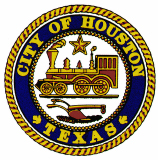Mayor Parker has put together a water conservation task force.
“This task force will be forward-thinking in its approaches to addressing water conservation and water supply diversification,” Parker said, “taking into consideration Houston’s climate, existing water supply and alternative approaches to ensuring a robust water supply for decades to come.”
Ideas include the use of recycled water for irrigation, rainwater harvesting, desalination and use of greywater – that which drains from showers and bathroom sinks.
“Even if Houston is in a good position as far as water supply goes, Houston is going to continue to grow and conservation needs to be a big part of your future water portfolio,” said task force member Jennifer Walker, water resources specialist at the Sierra Club’s Lone Star chapter. “There’s a lot of room for improvement in the region, and I’m really glad that the mayor is on board with exploring options.”
I’m glad, too. Conservation is always the cheapest option, and there’s surely a lot of room to grab the low-hanging fruit. See the Mayor’s press release for more.


i just want the record to show that i brought this issue up years ago with the white adminstration-
ozarka water buys its water from the houston municipal water supply for an old dirt cheap contract that has not been upped in years and then sales the water back to us-
budweiser beer buys it water from city of houston water supply because again-a long standind dirt cheap contract— you know, “back in the benne reyes days of houston politics”….
this is an outrage
joshua ben bullard
While I agree conservation is substantially cheaper, I think we can further sub-divide the issue of conservation into both supply and demand. Demand-side conservation can be assessed through user-fees, et. al. Supply-side conservation can be effected through infrastructure improvements. This is an area that needs serious consideration from the City. Look to San Antonio and El Paso as well as our Southwestern border states. We can learn from them. Unrestricted consumption is not sustainable.
First step is to actually change the city code to allow greywater systems – my understanding is that they’re currently illegal. I would love to irrigate my yard every time I run the dishwasher, do a load of laundry, or take a shower. For that matter, can we change the city code so I can also control mosquitos by keeping a few chickens, mow my lawn using a small pet goat, and so on?